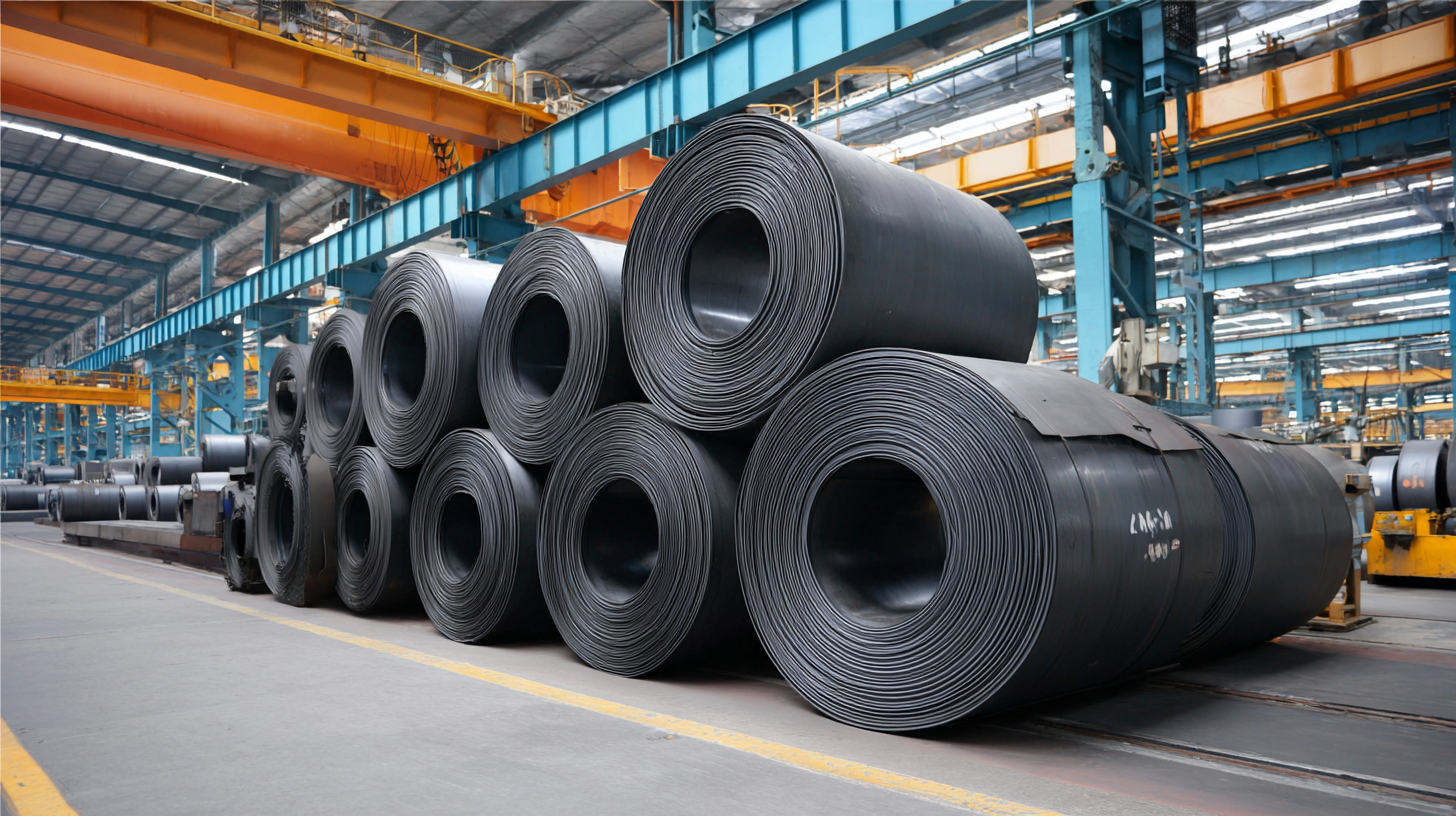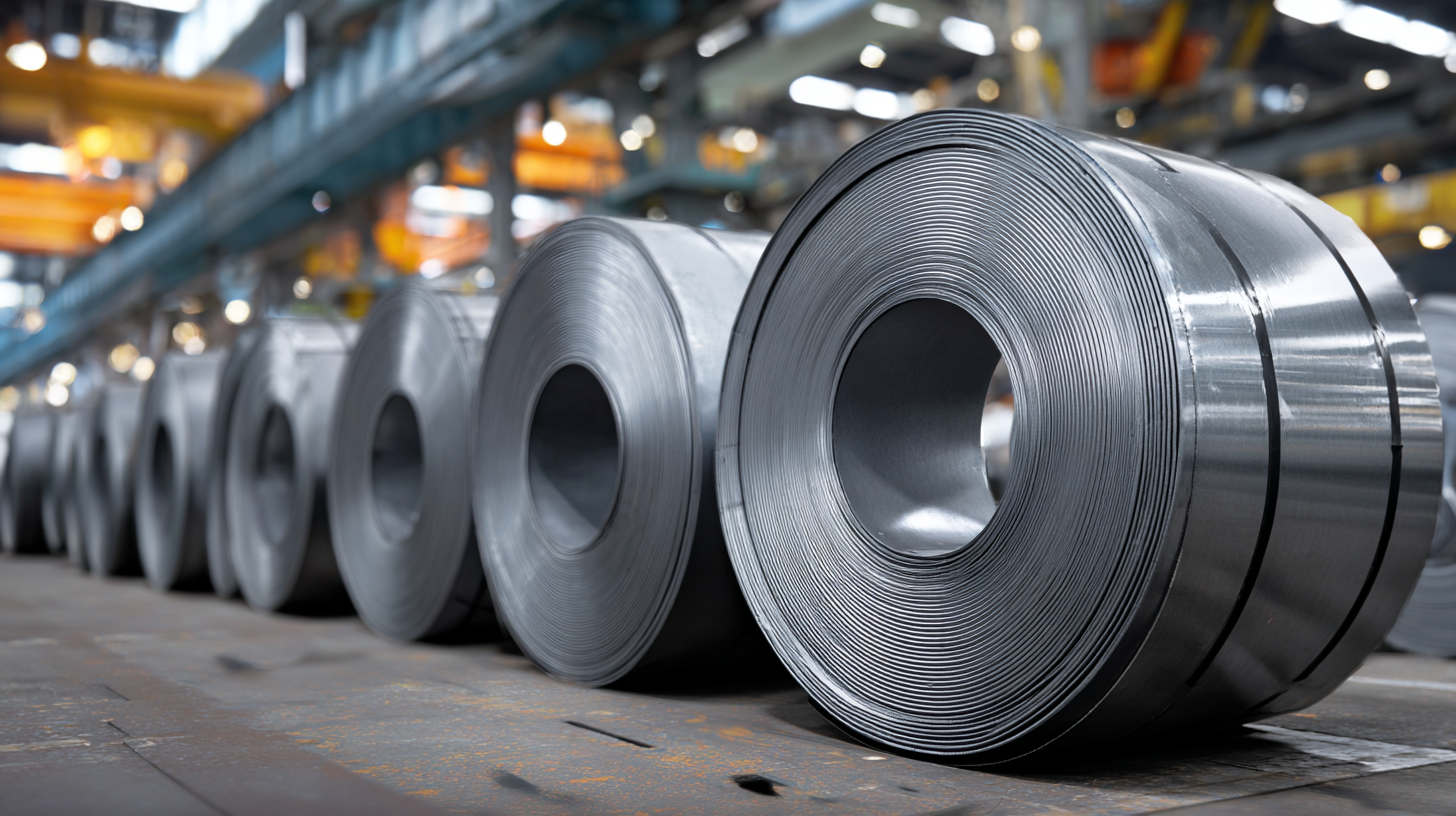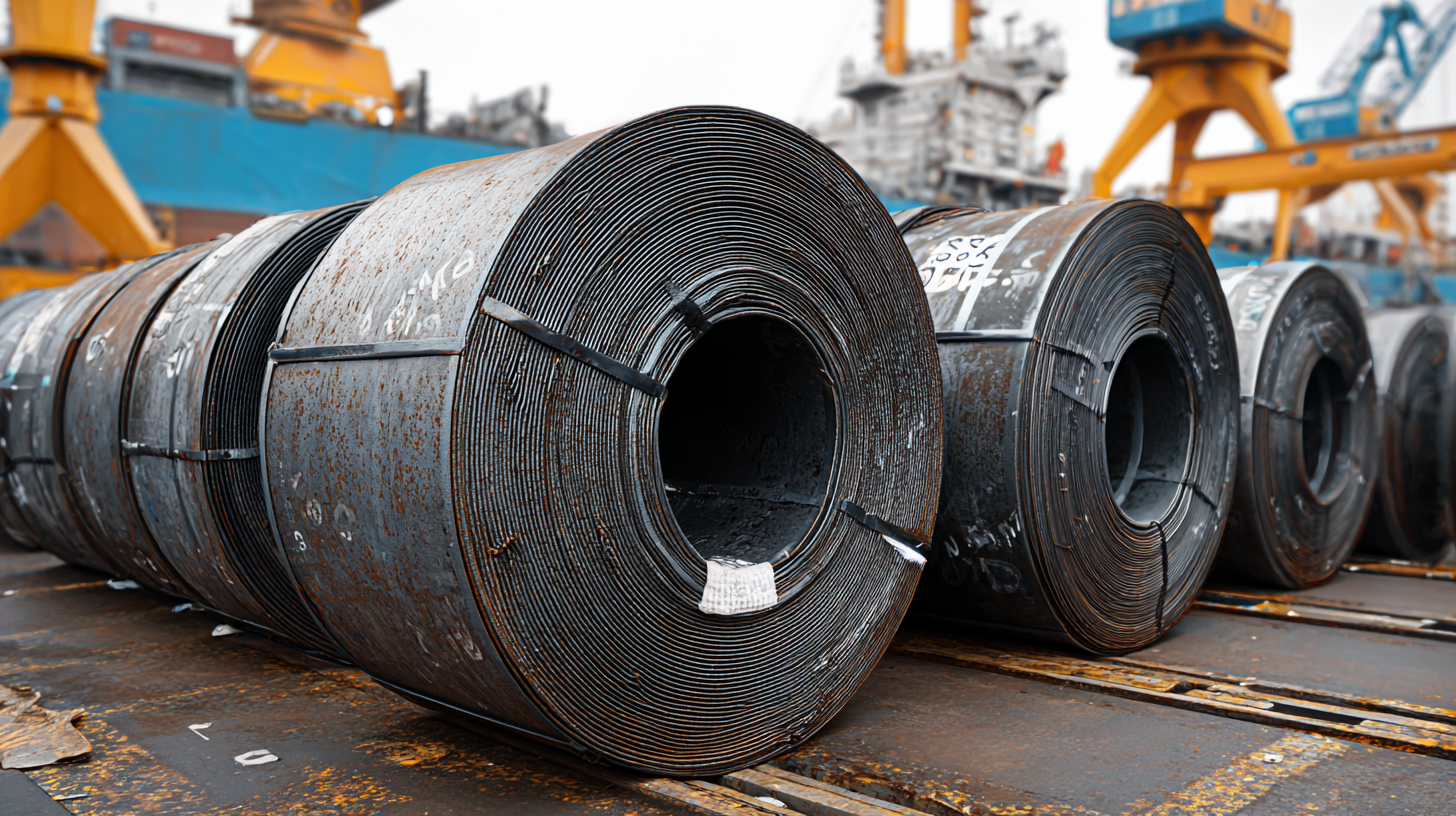In today's competitive manufacturing landscape, the efficiency and reliability of materials play a critical role in operational success. Cold Rolled Carbon Steel Coil has emerged as a vital component across various industries, offering superior strength, precise thickness, and excellent surface finish. According to a recent market report by Grand View Research, the global cold rolled steel market is expected to reach USD 500 billion by 2025, propelled by rising demand in automotive and construction sectors. However, to fully maximize the value derived from Cold Rolled Carbon Steel Coil, businesses must prioritize excellent after-sales support and minimize maintenance costs. This approach not only enhances product longevity but also contributes to significant savings, aligning with industry standards that suggest that effective maintenance can reduce operational costs by up to 30%. As manufacturers seek to optimize their processes, understanding the benefits of supportive service and maintenance strategies becomes increasingly essential.

Cold rolled carbon steel coils are pivotal in various industrial applications, delivering enhanced mechanical properties and superior surface finish compared to their hot rolled counterparts. According to a report by Grand View Research, the global cold-rolled steel market is anticipated to reach USD 320 billion by 2025, driven by the increased demand in the automotive and construction sectors. The excellent yield strength and formability of cold rolled carbon steel make it an ideal choice for producing high-quality components and structures, which are crucial in maintaining structural integrity and safety.
Moreover, the use of cold rolled carbon steel coils significantly reduces maintenance costs for manufacturers. The smooth surface finish allows for better paint adhesion and corrosion resistance, resulting in a longer lifespan for products, as highlighted in a study by Research and Markets. By minimizing the frequency of repairs and replacements, businesses can achieve substantial cost savings. Additionally, with improved after-sales support, manufacturers can ensure optimal performance and reliability throughout the lifecycle of their products, further maximizing the value delivered to customers in various industries.
| Application | Key Benefits | Maintenance Cost (Annual) | After Sales Support Rating (out of 5) |
|---|---|---|---|
| Automotive Components | High strength, lightweight, improved fuel efficiency | $500 | 4.8 |
| Construction | Durability, corrosion resistance, cost-effective | $750 | 4.5 |
| Electrical Applications | Good electrical conductivity, high formability | $300 | 4.7 |
| Machinery Manufacturing | Precision, enhanced performance, lower production cost | $600 | 4.6 |
| Furniture Design | Aesthetic appeal, customization options, strength | $200 | 4.9 |
After sales support plays a crucial role in enhancing the value of cold rolled carbon steel coil products. It goes beyond the mere transaction, establishing a relationship between the supplier and the customer. When companies provide robust after sales support, they ensure that clients receive assistance throughout the product lifecycle, which includes installation guidance, maintenance tips, and timely responses to queries. This proactive approach not only helps in addressing concerns but also educates customers on best practices, thereby maximizing the utility and lifespan of the steel coil.
Additionally, effective after sales support can significantly contribute to reduced maintenance costs. When customers are well-informed about the proper handling and care of their cold rolled carbon steel coils, the likelihood of damage or wear decreases. This informed maintenance practice leads to fewer repairs and less downtime, translating into cost savings for businesses. Suppliers that invest in after sales services demonstrate their commitment to product quality and customer satisfaction, ultimately fostering loyalty and repeat business. By prioritizing after sales support, companies can unlock greater value from their products while enhancing the overall customer experience.
This chart illustrates the relationship between after sales support ratings and maintenance costs for different products made from cold rolled carbon steel coil. Effectively managing these two aspects can significantly enhance the overall value of the product.
Effective maintenance strategies are crucial for industries using cold rolled carbon steel coils, as they not only enhance operational efficiency but also play a significant role in reducing overall costs. By implementing a proactive maintenance schedule, businesses can identify potential issues before they escalate, leading to fewer unexpected downtimes and thus minimizing production losses. Regular inspections and timely interventions ensure that equipment operates at its optimal level, ultimately extending the lifespan of the steel coils.
In addition to regular maintenance, investing in employee training on best practices can greatly impact maintenance costs. Well-trained personnel are more likely to recognize early signs of wear and tear, allowing for quick action and reducing corrective expenses. Furthermore, utilizing advanced monitoring technologies can help track the condition of the equipment in real-time, enabling businesses to make informed decisions about maintenance schedules and necessary upgrades. By focusing on these effective maintenance strategies, companies can ensure that they maximize the value of their cold rolled carbon steel coils while simultaneously driving down their operational costs.
When evaluating industry standards for cold rolled carbon steel coils, performance metrics play a crucial role in determining their value and effectiveness. Key metrics such as tensile strength, yield strength, and surface finish are essential to assess how well a material will perform in its intended application. High-quality cold rolled steel should exhibit superior mechanical properties, contributing to its durability and longevity even in challenging environments.

Tips for Selection: When choosing a supplier for cold rolled carbon steel coils, ensure they adhere to stringent quality control processes. Look for certifications that denote compliance with industry standards, such as ASTM or ISO, and request samples to test the material’s properties firsthand. Moreover, consider suppliers that provide excellent after-sales support, as robust customer service can be invaluable for resolving any issues post-purchase.
Additionally, it's important to focus on maintenance costs associated with the use of cold rolled carbon steel. Selecting materials that resist corrosion and wear can significantly reduce long-term maintenance efforts and expenses. Tip: Regular inspections and preventive maintenance can enhance the lifespan of your steel products, ensuring they continue to perform effectively in your operations.
In the steel industry, after sales support plays a crucial role in maximizing the value of cold rolled carbon steel coils. A case study from the Steel Manufacturers Association reveals that companies with robust after sales services experience a 30% increase in customer retention rates. This enhanced relationship not only leads to repeat business but also facilitates improved feedback loops, enabling manufacturers to fine-tune their product offerings. In practice, implementing dedicated support teams provides clients with timely solutions to operational challenges, ultimately enhancing the lifespan of their steel products.

Tip: Investing in training programs for after sales personnel can empower them with the skills needed to address customer inquiries efficiently, increasing client satisfaction and loyalty.
Moreover, reduced maintenance costs directly correlate with strategic after sales support initiatives. According to a report from the World Steel Association, companies that offer comprehensive maintenance programs can reduce equipment downtime by up to 25%. This not only saves costs but also boosts productivity, allowing manufacturers to fulfill orders more effectively. Tailoring maintenance services to meet customer needs results in long-term partnerships and drives innovation.
Tip: Regularly updating clients on new maintenance technologies or practices can further enhance their operational efficiencies, leading to mutual growth.





